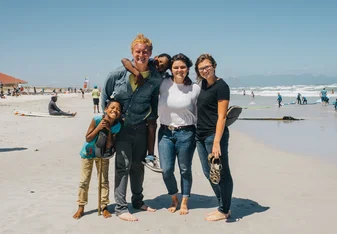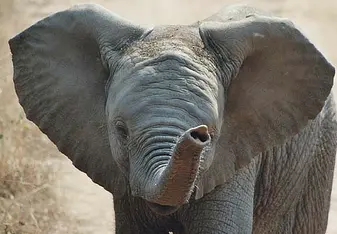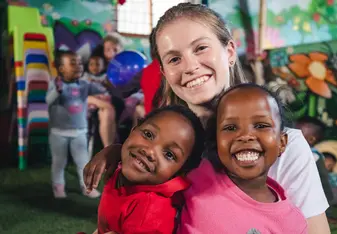Great White Shark Conservation in South Africa
- South Africa
About Program
To the casual tourist, Gansbaai appears as an idyllic coastal retreat. Look a little closer, and you'll discover that this is no sleepy fishing town: this is a thrill-seekers paradise, due to its abundance of Great White sharks!
Located two hours from Cape Town, Gansbaai welcomes hundreds of tourists each year. In fact, the sharks attract hordes of visitors, drawing in more tourist activity than any South African attraction other than Kruger National Park. But we offer a different kind of tourism; one which is vital to the world’s most misunderstood species.
As a volunteer, you'll help raise awareness of sharks, working alongside tourists and local school children to provide them with knowledge of the local environment and the importance of living in harmony with marine wildlife. You will also take part in an array of other activities, from data collection to cage diving – after all, what better way is there to truly understand this giant of the ocean?
Video and Photos
Program Highlights
- Cage dive with Great White Sharks.
- Contribute to shark research efforts.
- Assist at the Swop Shop and help the local children learn how to recycle!
















Response from The Great Projects
Hi Jen,
I am sorry you did not enjoy your time on The Great White Shark Project but was glad to help you depart early and also provide you with a full refund for the days you were not at the project. Regarding your issues, as you know it is not always possible to go out to sea if the weather does not allow. Whilst this can sometimes be frustrating it is something that we indicate before booking. There can sometimes be a few days in a row where it is not possible to go out to sea, as was the case when you were there, however during this time additional trips are arranged such as a trip to Betty's Bay to see the penguin colony, a day at a local animal shelter and a day out wine tasting to name a few. On other days, lectures and data input activities are completed.
Regarding a meaningful level of education, all trips out to sea are accompanied by Tom, the resident marine biologist who is available to answer questions and teach about data collection, shark ecology and conservation (topics which he discusses more in his lectures). He has done this for a number of years and has a lot of knowledge he is keen to share. I must also state that we do not guarantee at least one shark dive, and it is an extremely rare occurrence whereby it was not possible for a volunteer to get into the cage during their time on the project.
Regarding accommodation, I have passed on your comments to the team whom will take a look at the bathrooms.
Going out to restaurants and/or the local pub is something a lot of volunteers do during any down time, with or without the project staff. It is not a requirement, and everyone has the choice, but it offers a social environment especially on days when it is not possible to go out to sea.
Finally, it is not a company policy not to report poachers. I understand from your review that you were told it is, but it is most definitely not. It is however policy not to approach poachers as the health and safety of everyone is paramount and rules are in place to ensure everyone is safe at all times.
Again, I am sorry you did not enjoy your experience, but I hope you enjoyed your time in Cape Town for the remainder of your time in South Africa.
Michael
The Great Projects